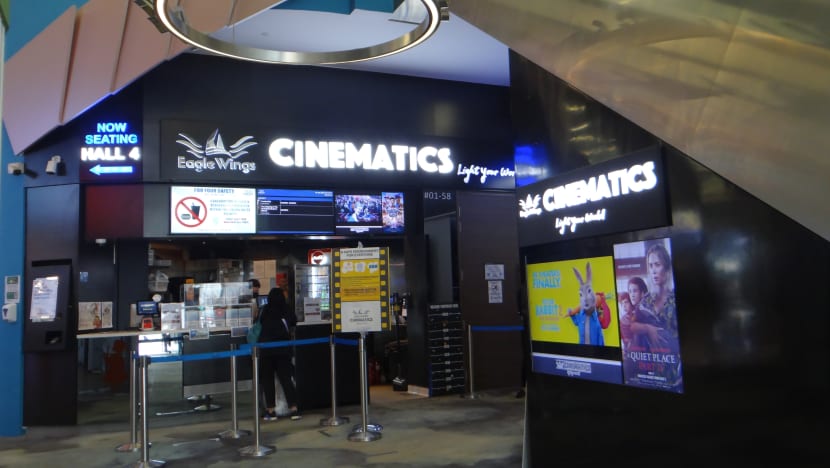Cinemas in Singapore turn to private bookings as movie attendance falls
With streaming platforms and home-viewing widely available, the traditional cinema model has been under pressure.


This audio is generated by an AI tool.
SINGAPORE: As fewer people head to traditional movie screenings, some cinema operators in Singapore are finding a new and growing revenue stream – private hall bookings and alternative content events.
According to the country’s largest cinema chain Golden Village (GV), its total bookings for hall rentals and special screenings have doubled compared to pre-pandemic levels.
While most of the bookings are from corporate clients, a GV spokesperson said it has “seen a notable rise in fan and community-led events”.
“(This is) a trend driven by audiences seeking more immersive, cinematic settings,” the spokesperson added.
GV also reported that admissions for non-traditional cinema content – like live viewing events and virtual reality concerts – were up 86 per cent this year compared with 2024, while private hall rental bookings also increased.
RE-IMAGINED ROLE FOR THE CINEMA
Industry observers said this shift points to a larger transformation in what cinemas do.
With streaming platforms and home-viewing widely available, the traditional cinema model has been under pressure.
Several players – most notably Cathay Cineplexes, one of Singapore’s oldest cinema chains – have shut down in recent years.
Cathay’s parent company mm2 Asia announced in September that it was putting its cineplex business in voluntary liquidation because it owed millions to landlords and other stakeholders.
The month before, beloved independent cinema operator The Projector . Its founder Karen Tan attributed the closure to “the combination of rising costs, changing audience habits and the worst consumer market conditions in a decade”.
Filmgarde Cineplexes also exited the industry in March after 18 years.
Dr Samer Elhajjar, senior lecturer of marketing at NUS Business School, said he believes this is a transition period for the industry – one that could ultimately redefine the role of movie theatres not just as commercial spaces, but cultural hubs for shared experiences.
He noted that cinemas need to “form partnerships” and “run brand activations”, with the key question being how they can balance creativity with an optimised return on investment.
“Cinemas already have prime locations, good sound, good lighting systems, comfortable seating, so they have all what it takes (to expand to the) events ecosystem,” he added.
“I think using these spaces for other experiences would be very useful and beneficial in terms of return investment.”
SMALLER PLAYERS FEEL THE SQUEEZE
But while major chains like GV are adapting, smaller independent cinema operators said even branching out may not be enough for them to keep up amid rising rental costs.
For example, EagleWings Cinematics, which has offered private theatre-hall bookings since 2018, saw a 37 per cent drop in sales this year compared with pre-pandemic levels.
“This has actually been our main income stream, where people book out our private theatre hall to host birthday parties and gatherings. We depend on this a lot,” said EagleWings Cinematics operations manager Marcus Gan.
“Now we're seeing bigger players like Golden Village and Shaw Theatres – they also are starting to realise that offering these cinema halls out for people to book is a good way to go.”
The Projector also closed its doors despite efforts to diversify into corporate events and F&B, as well as side events like question-and-answer sessions with film directors.
Mr Gan said that EagleWings, which has one location at King Albert Park Residences Mall, can provide a different experience as their halls are smaller with fewer seats, allowing them to host parties and even proposals.
“I hope that more people will know that the cinema industry really needs a lot of help. The support from the general public … is very important,” he added.
“I think this is part of Singapore's legacy.”











